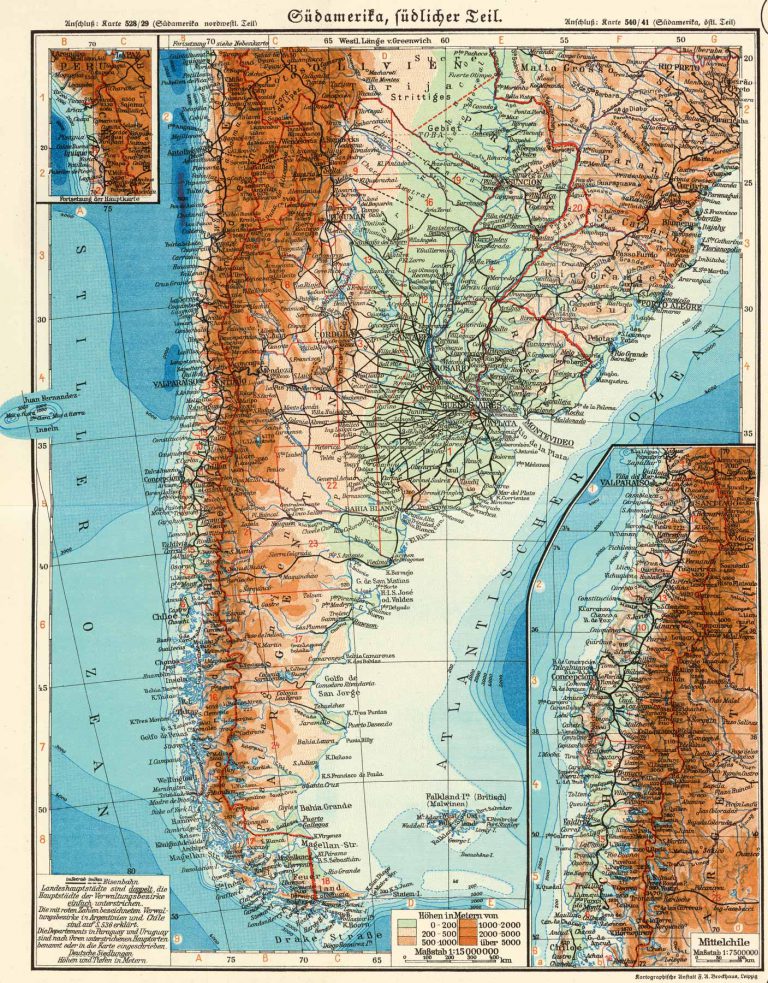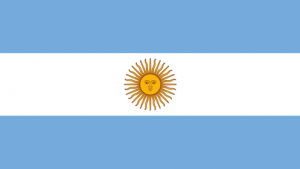
Argentina
Policy on Immigration and Refugees
Argentina’s history has been shaped by migration. Between 1870 and 1930, some six million Europeans have settled here. Its 1876 immigration law is quite open. Some migrants are recruited in order to create a “white” Argentine nation, while Patagonia’s indigenous population is almost completely annihilated. “Gobernar es poblar” (“to rule means to populate”) is the motto of the European-influenced elites. In the 1920s, Argentina is one of the world’s leading agricultural exporters.
The global Great Depression thus hits the country hard: Between 1929 and 1932, state revenues fall drastically while unemployment climbs. In 1930, the military revolts. A coalition of right-wing parties now dominates the country and issues a decree severely restricting immigration in 1936; the laws’ main targets are communist, republican, and Jewish refugees from Spain and Germany, who are defamed as a danger to the health of the Argentine population and a threat to the existing political order.
From 1938 to 1942, President Roberto María Ortiz bolsters democracy and liberal politics. But his government, too, tightens immigration laws out of concern for “national security,” in the interests of the Argentine workforce, and in an effort to keep Argentina’s fascists at bay.
During the Évian Conference, all Argentine ambassadors are instructed to reject visa applicants on principle if they appear to be undesirable in their home countries. Two weeks after the conference, border controls are tightened to prevent illegal entry.
On July 28, 1938, a decree effectively revokes the liberal immigration law of 1876. From now on, immigrants must present a visa from the Argentine consulate of their country of origin, a disembarkation permit from the Argentine immigration authorities, and proof of an agricultural project. As of the summer of 1938, strict controls over all documents by the Ministry of Justice, the political police, and general staff make it nearly impossible for Jewish refugees from Germany and Austria to enter Argentina.

“Argentine Economics”
An essential goal of Argentina’s migration policy is to resettle and cultivate regions depopulated by the genocide of indigenous peoples. Hence, the type of immigration advocated is contingent upon economic utility. In the 1930s, the restriction to farmers is also meant to deter Jewish refugees. Nevertheless, many manage to enter the country.
Richard Edes Harrison / Fortune, July 1938
“Argentine Economics”
An essential goal of Argentina’s migration policy is to resettle and cultivate regions depopulated by the genocide of indigenous peoples. Hence, the type of immigration advocated is contingent upon economic utility. In the 1930s, the restriction to farmers is also meant to deter Jewish refugees. Nevertheless, many manage to enter the country.
Richard Edes Harrison / Fortune, July 1938
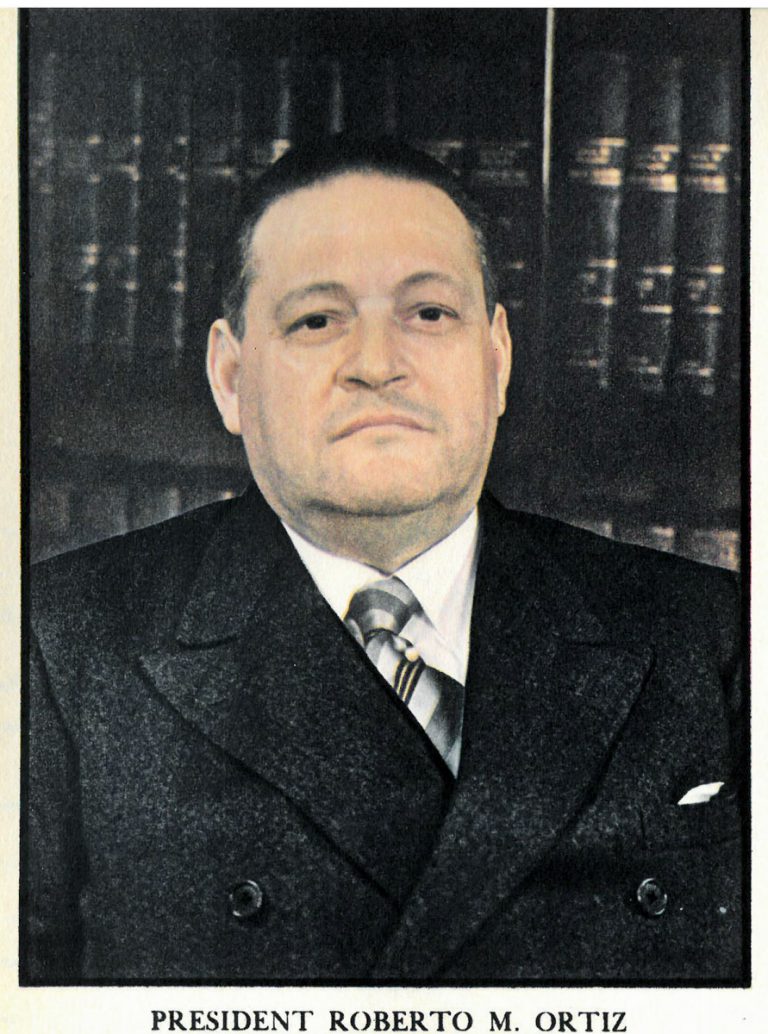
Roberto María Ortiz
The government of Ortiz, who is elected president in 1938, has close political and economic ties with Britain. Nevertheless, Ortiz takes a neutral stance on foreign policy. At home, he asserts democratic and humanitarian positions; but he also tightens immigration laws to keep domestic fascists at bay.
Fortune, July 1938
Roberto María Ortiz
The government of Ortiz, who is elected president in 1938, has close political and economic ties with Britain. Nevertheless, Ortiz takes a neutral stance on foreign policy. At home, he asserts democratic and humanitarian positions; but he also tightens immigration laws to keep domestic fascists at bay.
Fortune, July 1938
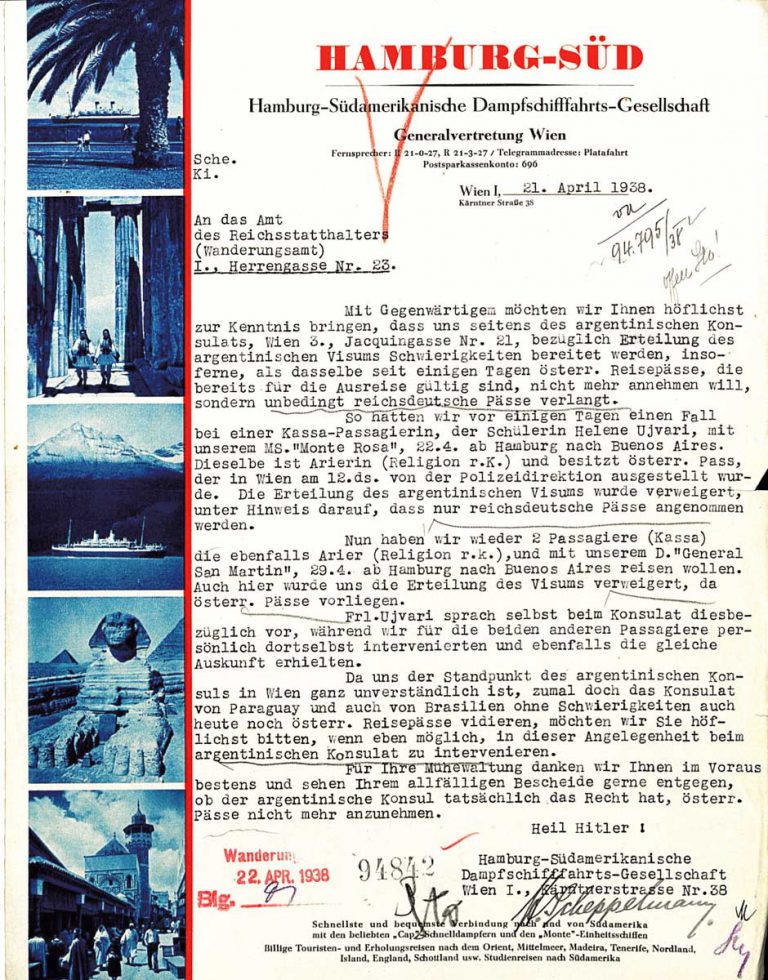
Letter from the Hamburg-South American Steamship Company about the new visa restrictions, April 21, 1938
By April 1938, Argentine consulates have grown extremely restrictive in issuing visas for Austrian applicants who want to leave the country after its integration into the German Reich.
Österreichisches Staatsarchiv, Wien
Letter from the Hamburg-South American Steamship Company about the new visa restrictions, April 21, 1938
By April 1938, Argentine consulates have grown extremely restrictive in issuing visas for Austrian applicants who want to leave the country after its integration into the German Reich.
Österreichisches Staatsarchiv, Wien
Delegation
Tomás Alberto Le Breton
* 20 May 1868 Buenos Aires † 15 February 1959 Buenos Aires
The family of Tomás Alberto Le Breton has its roots in the British Channel Islands; his grandfather emigrated to Argentina. Le Breton is a member of the country’s European elite and is regarded as a lifelong friend of Britain. He studies law in Buenos Aires.
In 1914 he begins his political career as a member of Congress representing the Unión Cívica Radical (Radical Citizens’ Union). In 1918, with his party in power, he is appointed to the influential post of ambassador to the United States. In 1922 he returns to his home country as Minister of Agriculture, a key political position.
In 1931, his diplomatic career resumes when he is appointed ambassador to France. Shortly before the Évian Conference, on July 1, 1938, he is named ambassador to the United Kingdom. He holds this post until 1941.
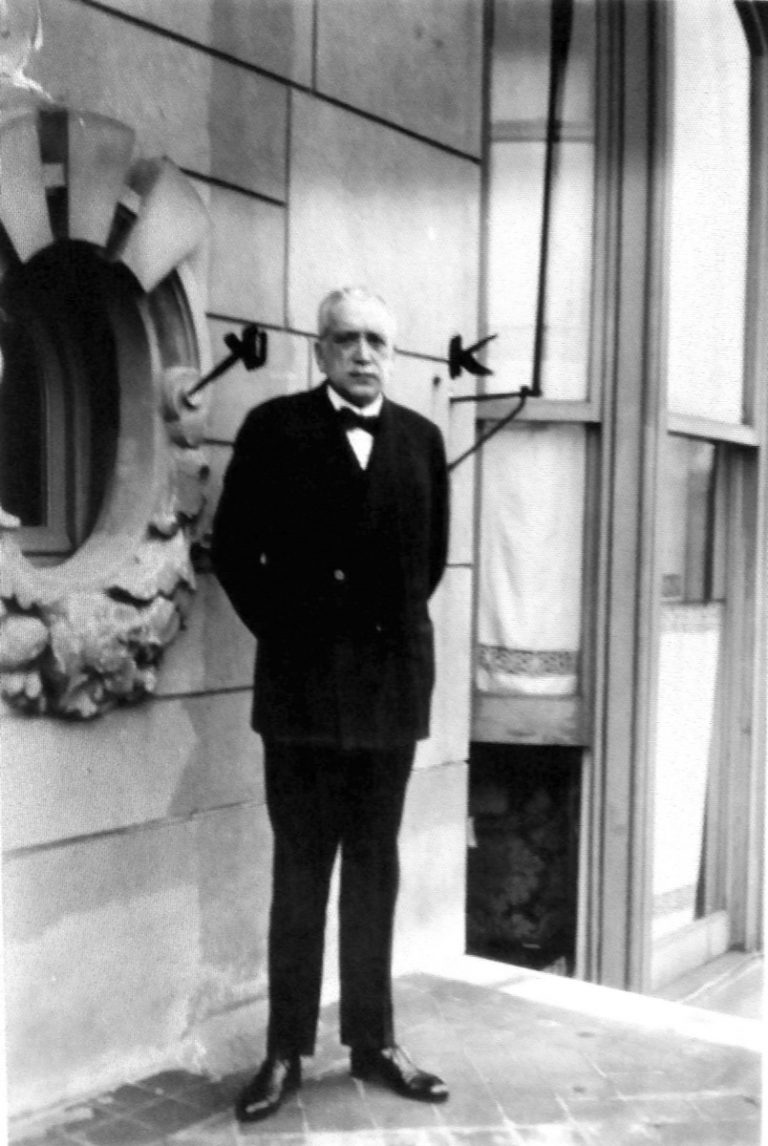
Tomás Alberto Le Breton, ca. 1930
Archivo del Ministerio de Relaciones Exteriores y Culto, Buenos Aires
Tomás Alberto Le Breton, ca. 1930
Archivo del Ministerio de Relaciones Exteriores y Culto, Buenos Aires
Carlos Alberto Pardo Bidart
* 5 November 1898 Buenos Aires † 14 December 1976 Buenos Aires
Joining Tomás A. Le Breton as a conference participant is Carlos Alberto Pardo Bidart, Secretary of the Argentine Permanent Delegation to the League of Nations.
Pardo has been in Argentina’s diplomatic corps since at least the 1920s, and been on staff at the embassy in London for many years, before being sent to Geneva as a delegate to the League of Nations. In 1937 he represents that body’s International Labor Office at the International Textile Conference in Washington, DC.
In the 1940s, his diplomatic career brings him back to Washington, where he serves as first secretary of the Argentine Embassy. He is later appointed ambassador to Belgium.
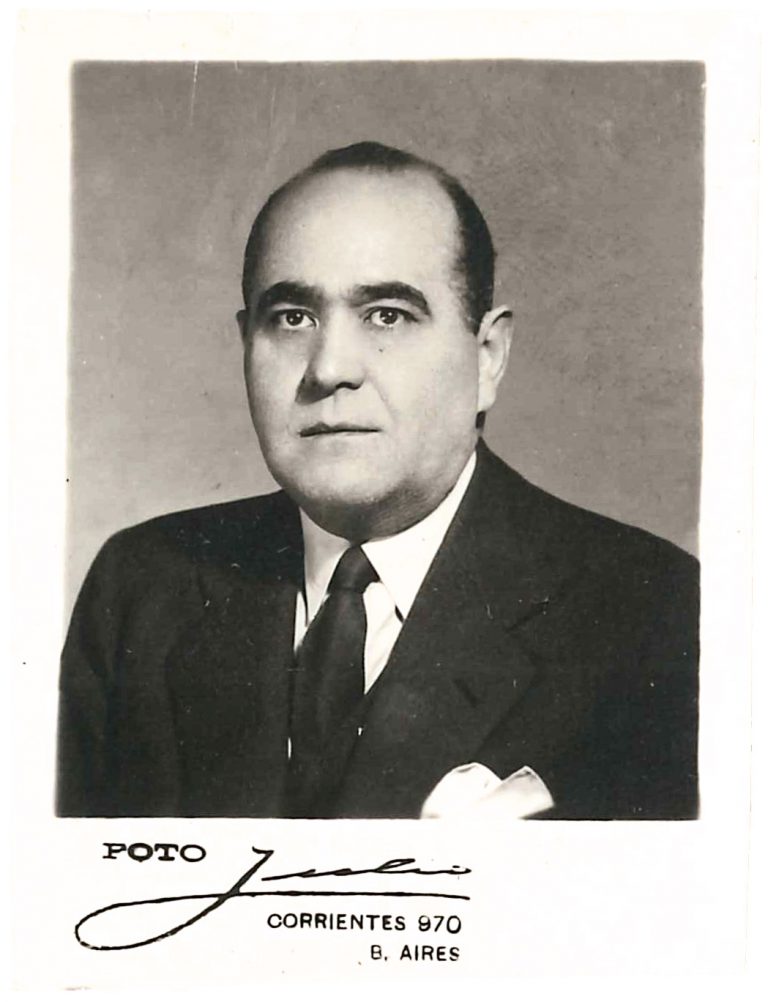
Carlos Alberto Pardo Bidart, ca. 1948
Archives d’État de Genève
Carlos Alberto Pardo Bidart, ca. 1948
Archives d’État de Genève
Conference Contributions
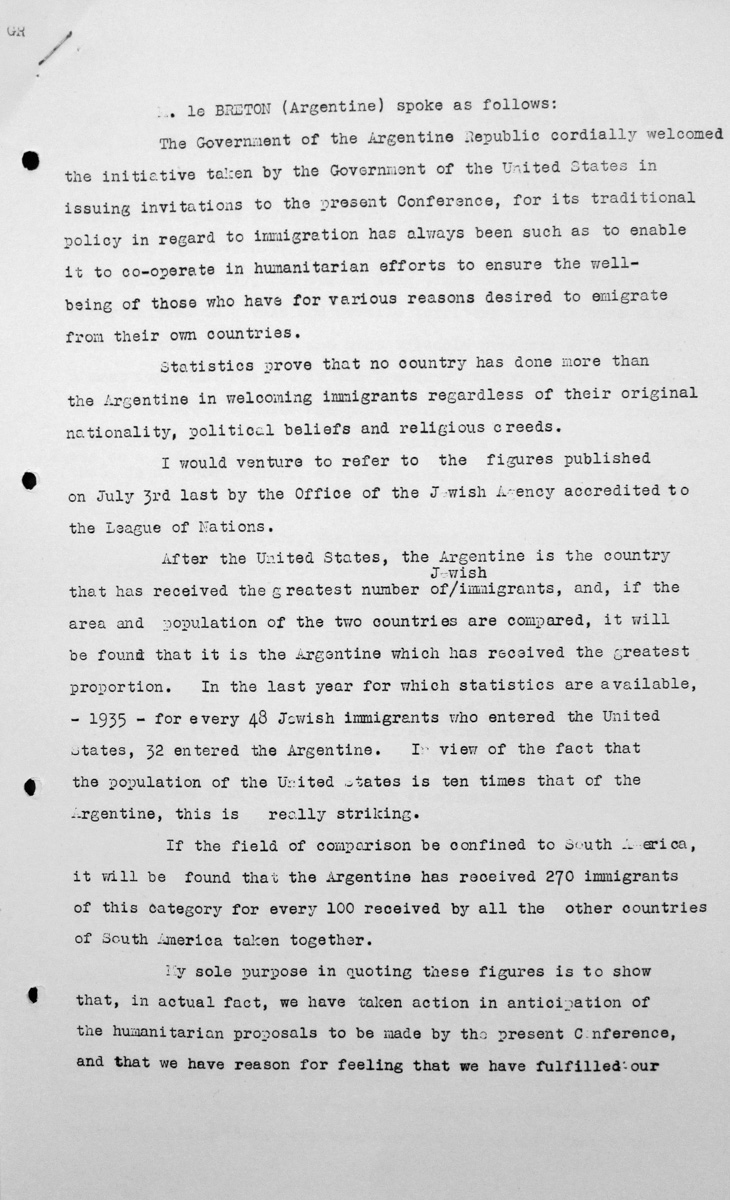
Speech by Tomás Alberto Le Breton (Argentina) in the public session on July 7, 1938, 3.30pm, p. 1/4
Franklin D. Roosevelt Library, Hyde Park, NY
Speech by Tomás Alberto Le Breton (Argentina) in the public session on July 7, 1938, 3.30pm, p. 1/4
Franklin D. Roosevelt Library, Hyde Park, NY
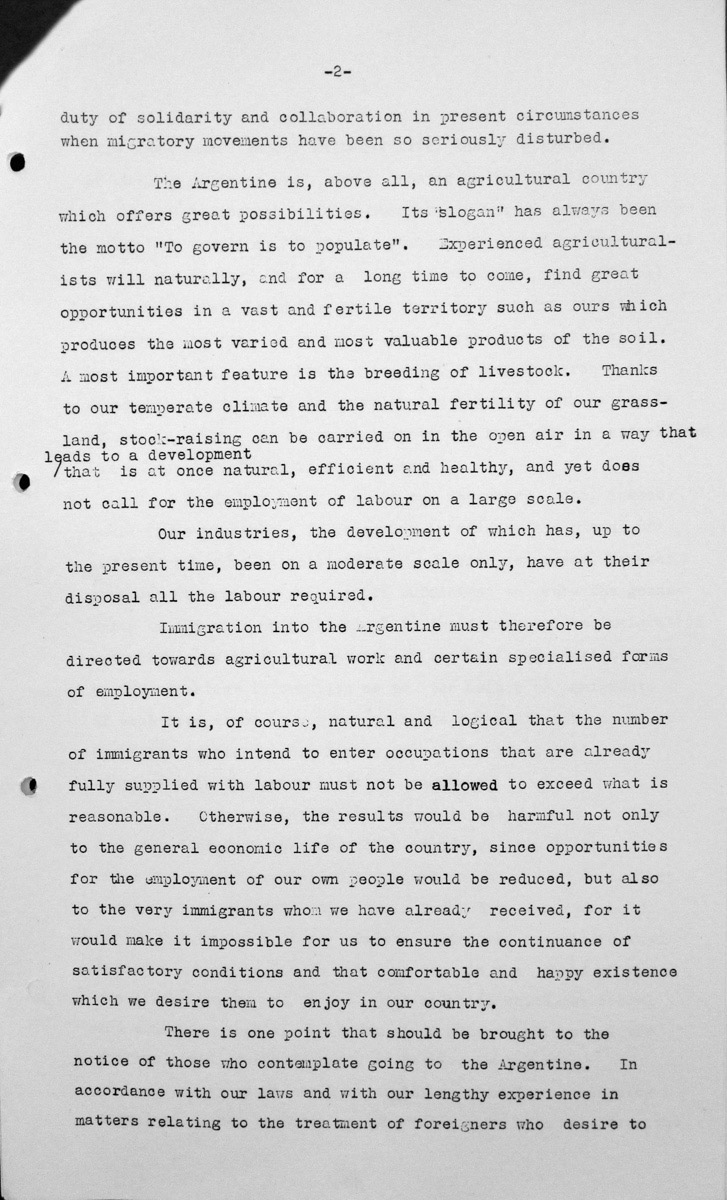
Speech by Tomás Alberto Le Breton (Argentina) in the public session on July 7, 1938, 3.30pm, p. 2/4
Franklin D. Roosevelt Library, Hyde Park, NY
Speech by Tomás Alberto Le Breton (Argentina) in the public session on July 7, 1938, 3.30pm, p. 2/4
Franklin D. Roosevelt Library, Hyde Park, NY
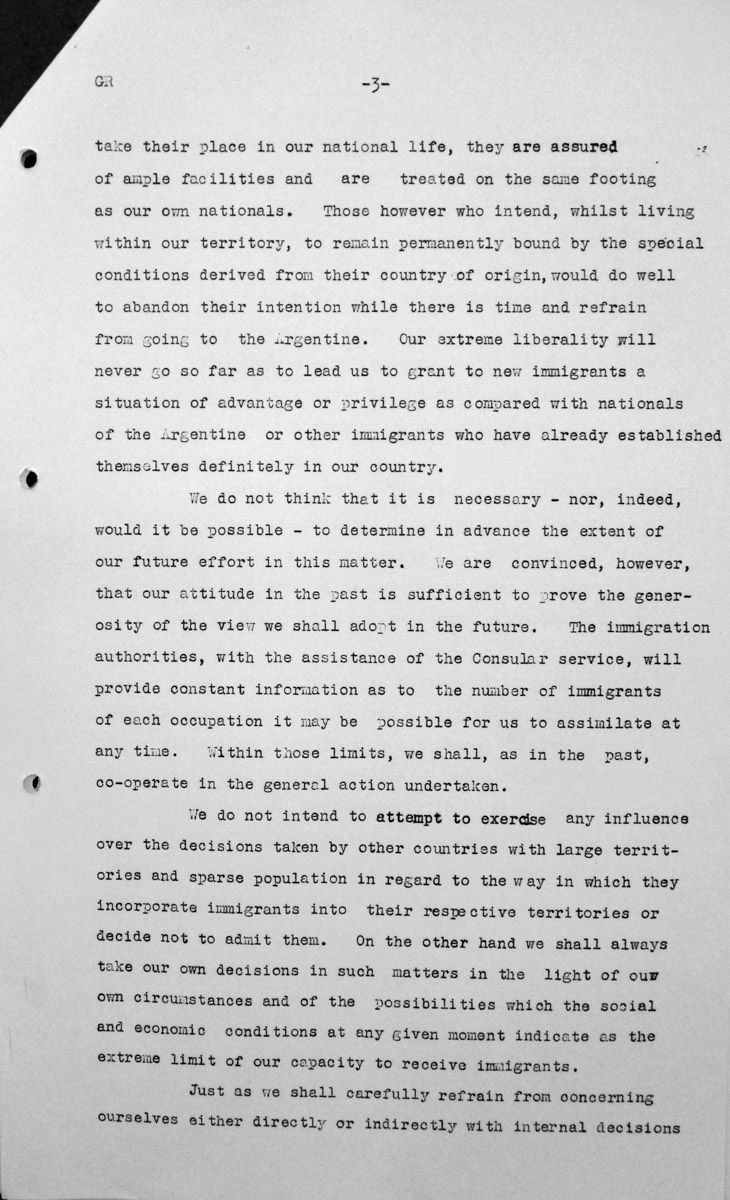
Speech by Tomás Alberto Le Breton (Argentina) in the public session on July 7, 1938, 3.30pm, p. 3/4
Franklin D. Roosevelt Library, Hyde Park, NY
Speech by Tomás Alberto Le Breton (Argentina) in the public session on July 7, 1938, 3.30pm, p. 3/4
Franklin D. Roosevelt Library, Hyde Park, NY
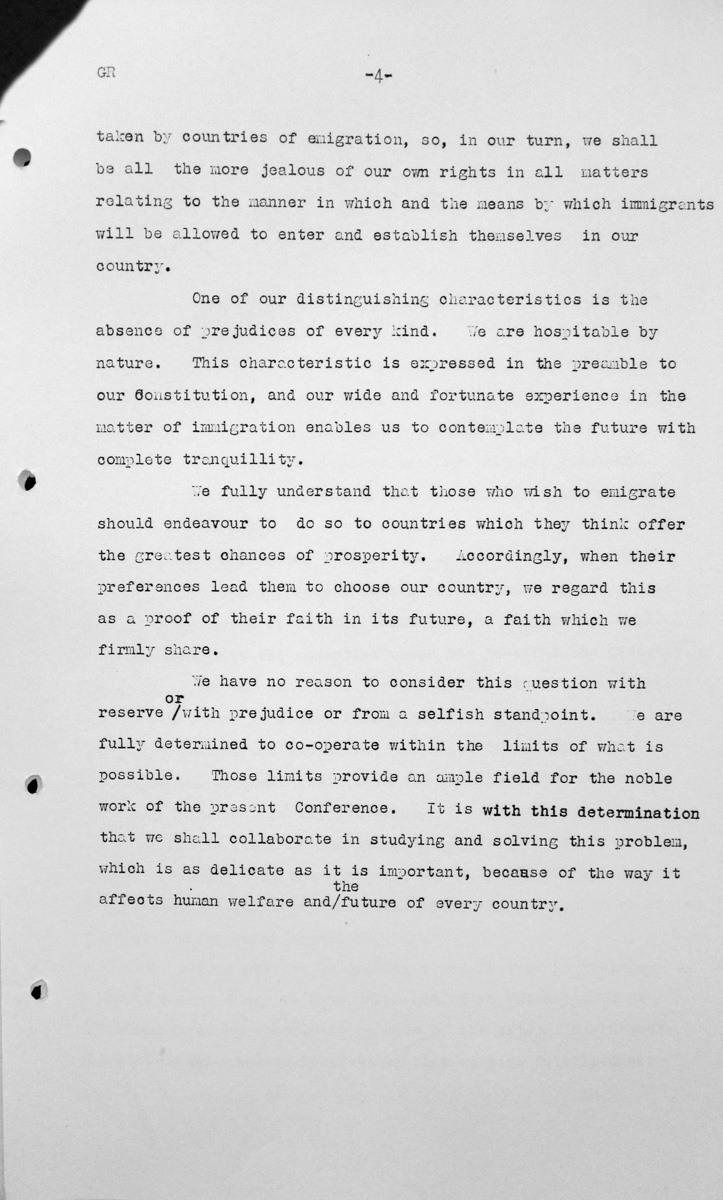
Speech by Tomás Alberto Le Breton (Argentina) in the public session on July 7, 1938, 3.30pm, p. 4/4
Franklin D. Roosevelt Library, Hyde Park, NY
Speech by Tomás Alberto Le Breton (Argentina) in the public session on July 7, 1938, 3.30pm, p. 4/4
Franklin D. Roosevelt Library, Hyde Park, NY
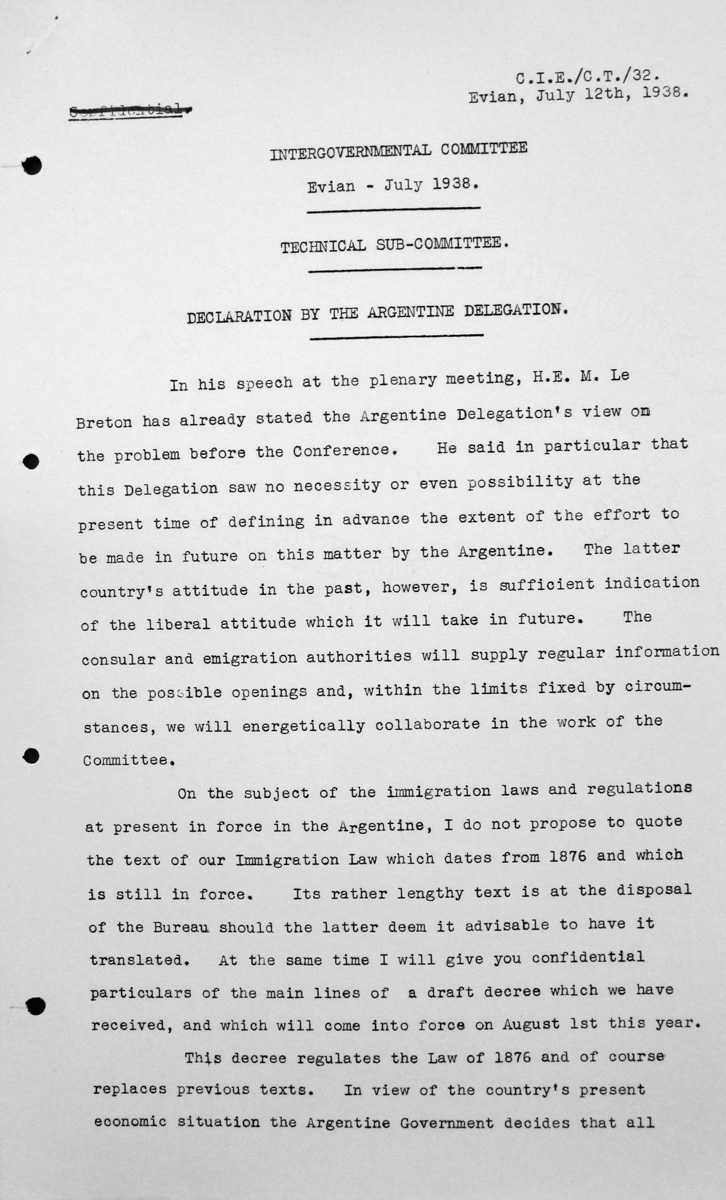
Declaration by the Argentine delegation to the Technical Sub-Committee, July 12, 1938, p. 1/2
Franklin D. Roosevelt Library, Hyde Park, NY
Declaration by the Argentine delegation to the Technical Sub-Committee, July 12, 1938, p. 1/2
Franklin D. Roosevelt Library, Hyde Park, NY
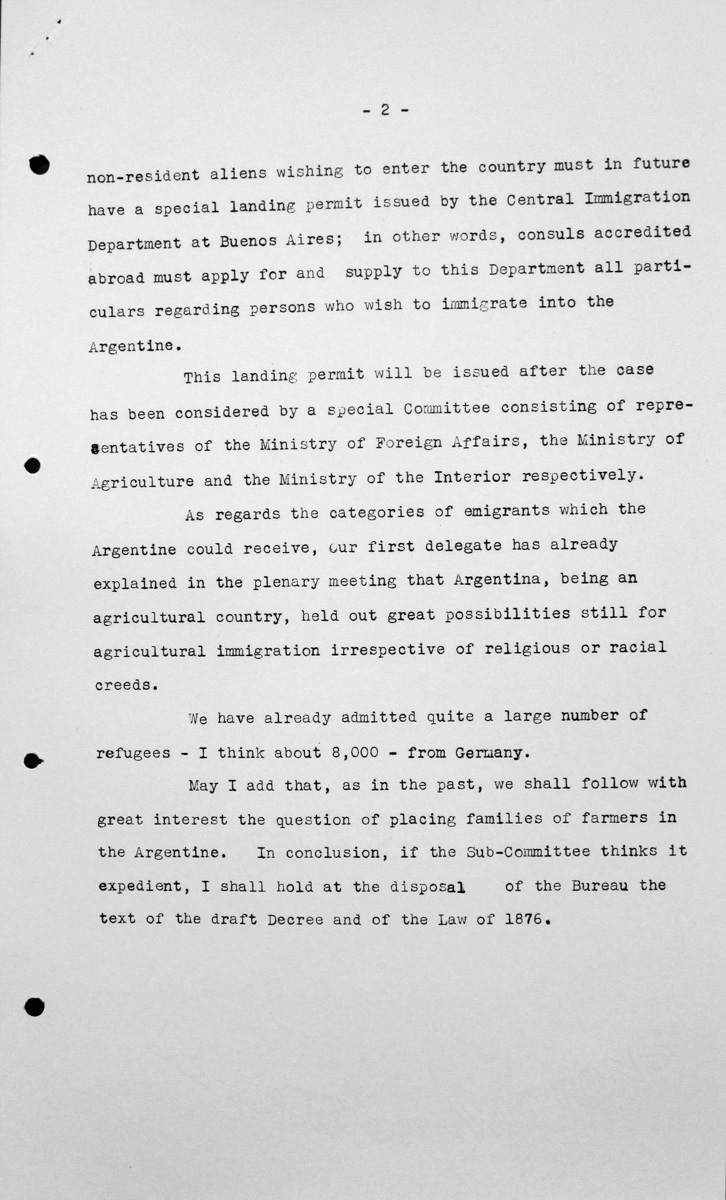
Declaration by the Argentine delegation to the Technical Sub-Committee, July 12, 1938, p. 2/2
Franklin D. Roosevelt Library, Hyde Park, NY
Declaration by the Argentine delegation to the Technical Sub-Committee, July 12, 1938, p. 2/2
Franklin D. Roosevelt Library, Hyde Park, NY
